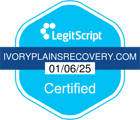Mutual aid support groups, also known as peer groups, are the backbone of addiction recovery. While family and friend support is essential to anyone returning home after residential treatment, most people find additional reinforcement within a sober network, which makes it easier to share similar challenges and joys and have access to valuable resources. But which programs are right for you? Let’s take a closer look.
Benefits of Recovery Support Groups
Whether you’re an introvert, an extrovert, or somewhere in-between, being with other people who “see” you and share an authentic understanding of your struggles and triumphs gives you a greater sense of belonging—which helps anchor your sobriety choices.
The Greater Good Science Center states that “scientists believe we are essentially wired to connect with other people because natural selection favored humans with a stronger propensity to care for their offspring and organize into groups.” The center also notes that a supportive social network improves resiliency, as “the availability of social support in all its forms—instrumental support, emotional support, support with how you think about things—they all matter and help us in facing challenges.”
The Mayo Clinic points to additional benefits of support groups in health-related circumstances, which we provide verbatim:
- Feeling less lonely, isolated, or judged
- Reducing distress, depression, anxiety, or fatigue
- Talking openly and honestly about your feelings
- Improving skills to cope with challenges
- Staying motivated to manage chronic conditions or stick to treatment plans
- Gaining a sense of empowerment, control, or hope
- Improving understanding of a disease and your own experience with it
- Getting practical feedback about treatment options
- Learning about health, economic, or social resources
“The common experience among members of a support group often means they have similar feelings, worries, everyday problems, treatment decisions, or side effects,” Mayo indicates. “Participating in a group provides you with an opportunity to be with people who are likely to have a common purpose and likely to understand one another.”
Different Types of Support Groups
Almost every addiction rehabilitation facility offers some type of 12-Step program for individuals to attend, including Ivory Plains. Usually it’s Alcoholics Anonymous (AA) or Narcotics Anonymous (NA), but there are others. It’s important to know that you have options to explore, for just as peer groups can be helpful, sometimes there are certain drawbacks. Here are the top concerns, according to the Mayo Clinic:
- Disruptive group members
- Conversation dominated by griping
- Lack of confidentiality
- Emotional entanglement, group tension, or interpersonal conflicts
- Inappropriate or unsound medical advice
- Competitive comparisons of whose condition or experience is worse
Understanding that you have choices in recovery support groups helps you avoid being discouraged by one approach or a particular environment. Here are a few to try.
AA, NA, and others
Many people also appreciate having a literal path to follow—the proverbial “one step at a time”—as they learn more about their addiction, examine their behaviors, and try to move forward in life. So working a 12-Step program outlined in the various Anonymous groups provides an individual with a compass by which to navigate a purposeful sobriety. The one key point about Anonymous groups is that there are dozens of meetings throughout a community, as well as online interaction. If you’re not comfortable with the time, location, or attendees of one meeting, try others until you find one that suits you.
Some of the tenets of Anonymous groups refer to God or a higher power, which might be okay for some people but not others. AA Agnostica is a mutual aid support group “where secular AA people were invited to share their experience, strength, and hope. For nonbelievers in recovery the website has been, and continues to be, a comfort and an inspiration. Our only wish is to ensure suffering alcoholics that they can find sobriety in AA without having to accept anyone else’s beliefs or having to deny their own.”
The Buddhist Recovery Network “promotes the use of Buddhist teachings and practices to help people recover from the suffering caused by addictive behaviors and is open to people of all backgrounds, and respectful of all recovery paths.”
Celebrate Recovery
People who are Christian and in recovery may want more biblical teachings to reinforce the foundation of their sobriety. Celebrate Recovery is a “Christ-centered program for anyone struggling with hurt, pain, or addiction of any kind.”
Designed by mental health experts in 1994 using cognitive behavioral therapy, SMART stands for Self-Management and Recovery Training. “SMART Recovery doesn’t encourage participants to admit powerlessness over addiction. Instead, it shifts what’s known as the ‘locus of control’ and enables them to believe they have power over their choices.” Many people incorporate SMART Recovery and 12-Step practices at the same time.
Founded in 1975, Women for Sobriety (WFS) is “the first peer-support program tailored specifically for women overcoming SUDs.” Through regional and online meetings, “the New Life Program provides supportive, empowering, secular, and life-affirming principles that address the unique needs and challenges of women in recovery.”
Find the Support You Deserve at Ivory Plains
At Ivory Plains Recovery Center, we treat addiction as a brain disease. Our board-certified clinical team understands how dealing with mental health conditions, substance use disorder, and alcohol use disorder can make some people feel isolated. Our addiction rehabilitation program in Adair, Iowa introduces residents to 12-Step principles and other helpful community resources to ensure they develop a strong recovery network. Give us a call today to learn how our individualized treatment approach can help you thrive.








